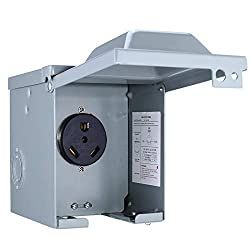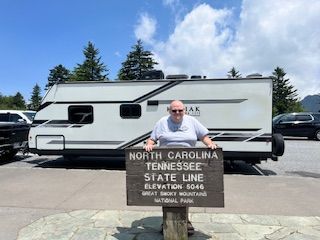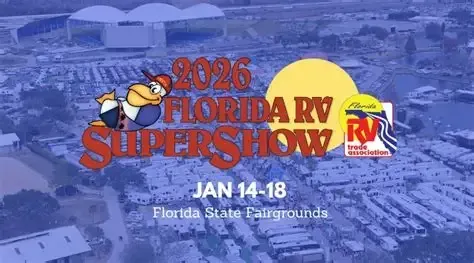RV Electrical Service
Doug S • April 15, 2025
A very common discussion on RV forums is about installing an outlet at home for your camper. The discussion invariably leads to the topic of 120 vs. 240 volts and there is a lot of confusion there with dire warnings of things blowing up, frying, and general mayhem occurring if you get that wrong. I’m here to try and dispel some of the misconceptions that are out there.
MyRV.us is an excellent resource for wiring up 30amp and 50amp receptacles (RV power outlet box, illustrated below) and has information on how to test for polarity and correct voltage.
30 amp RV Power Outlet – 120v
The biggest mistake that people make with 30amp receptacles ( NEMA TT-30R ) is they look at the plug and think of their home clothes dryer which is supplied by a 240v circuit. They buy a double pole breaker and promptly wire it up as a 240 volt outlet, which is wrong. Upon the first plug in, they get the magic white smoke coming out of various appliances (if they don’t have an EMS to save them ).
So, let there be no confusion- 30amp RVs use 120v .
If you’re one of the unfortunate folks who applied 240v to your 30amp RV, then you can expect to have fried your converter (aka battery charger). Get the model # off of your existing one and go to BestConverter to order a replacement or upgrade. Then start testing appliances to see what else may have failed; if you’re lucky, that’s it. If you’re unlucky, then it’ll be more. Hopefully you used a licensed electrician, so it’s their insurance that will pay for repairs.
50amp RV Power Outlet – 240v
This is where I tend to get the most pushback on forums and Facebook groups when I say that 50amp supplying the RV receptacle is 240v . It absolutely is. Your common RV just treats it as 2 separate legs of 120v. If you look at your breaker panel, there’s a big 2-pole breaker in the middle. This breaker is what supplies the two legs (also known as phases – i.e. “A phase” and “B phase”).
Let’s geek out for a moment: each leg (or phase, if we’re being technically correct) individually supplies 120v but when both phases are connected to a receptacle and ran from a two pole breaker the reading across the two phases at the receptacle will be 240v (or 240v depending on the voltage provided from the utility company). Another thing I want to point out is if you measure voltage from one leg (e.g. “A phase” or “B phase”) to ground you should read 120v, but if you measure voltage across both legs, you should read 240v.
And that geeked out description is why, while it’s not usual, there are some RVs out there with more residential style breaker panels that support 240v appliances. The specific 240v appliances you’ll see most common are clothes dryers and air conditioners. I actually know 3 different people personally that have RVs setup this way. One person has a 240v clothing dryer; another has huge residential air conditioners in an old Prevost bus; and the 3rd is a modern custom build with a pair of 240v mini-split air conditioners.
You don’t see it often because these 240v appliances won’t work on 30amp/120v campsites without a major investment in batteries and inverters. But that is a whole different bailiwick and that’s bigger than this article.
Mark Polk with RV Education 101 does a great job of describing what I’ve tried to write about 50amp RV power. Make sure you watch to the end where he confirms that some higher end coaches DO use 240v appliances inside.
Importance of an EMS
Electric monitoring systems are very important and should be used every time you plug in, given that it’s so easy for RV owners and electricians to wire up the outlets wrong. Between the cost of replacement parts, the time, and the hassle- a single save from the EMS pays for itself.
Thanks
A special thanks to my friend who didn’t want to be named but who is a master electrician and technically reviewed this article.












